#feminist nonfiction
Text

In her utterly superb writing, Joanna Russ discusses all the techniques that have been used to suppress women authors, keep them from the canon, and dismiss their work—from lauding their one exceptional work as separate, unusual, to isolating them from their fellow authors and community, to labeling their choice of topics as immodest or confessional or particular—and much more. How to Suppress Women's Writing is a must-read, superb and now covered in my annotations, highlights, and underlines.
She emphasizes that the solution is not bringing women one by one into an already set canon but by allowing for multiple "centers," multiple ways of writing and of great literature. She also does a good job in an afterword of highlighting her own privilege and describing how her categories can be applied to many different marginalized groups.
(Note: I thought Jessica Crispin's forward was so awful (she does the same thing to women writers that Russ literally describes in this book, describes Russ as an exception who wrote unlike other ’80s/’90s icons, then claiming she's been left out of a literary canon of those women SFF authors, which she has not) that I carefully removed it from my volume of the book.)
Content warnings for sexual assault, misogyny, suicide.
#how to suppress women’s writing#joanna russ#bookworm#bookish love#book review#feminist nonfiction#my book reviews
19 notes
·
View notes
Text
“Why was the international community letting Israel get away with it? Khalida* explained to us that while it was very important for us to use international law and international humanitarian law as a mechanism to advance our cause for self-determination and equality, we had to understand that our fate ultimately depended on politics. Many politicans around the world were willing to sacrifice the rights of people and turn a blind eye to violations, especially when it came to Israel’s occupation. She reminded us that international law had been created by colonial powers and was disproportionately applied to serve their interests…I now understood…how countries like the United States shielded Israel from any sort of punitive measures.”
— Ahed Tamimi and Dena Takruri, They Called Me A Lioness
*Khalida Jarrar (famous Palestinian feminist) is another fellow inmate of Tamimi’s who decided to teach the imprisoned children high school and law courses herself when the Israelis failed to provide an actual teacher and continuously threatened her for doing so. She was helped by her cellmate Yasmeen Shaaban who served as the cell block representative and they both fought for the children and prisoner’s rights while being imprisoned and constantly threatened
#they called me a lioness#ahed tamimi#dena takruri#nonfiction#palestine#global strike week#bookblr#book quotes#khalida jarrar#yasmeen shaaban#feminist#feminism
75 notes
·
View notes
Photo

--Debby Friday, There, A Sound: Shouting as Aesthetic Practice
#debby friday#essay#quote#women of noise#op#black women in noise#writings on blackness#feminist#experimental music#performance art#creative nonfiction#industrial
150 notes
·
View notes
Text
slightly embarrassed to ask this but what are some like feminist studies/theory books ppl reccomend?
#preferably nonfiction like a look at the theory of it less so novels w a feminist message yknow#just smthn i actually need to start reading/studying yknow and i do not trust lists ppl make. looking at some though anyways lol
4 notes
·
View notes
Photo


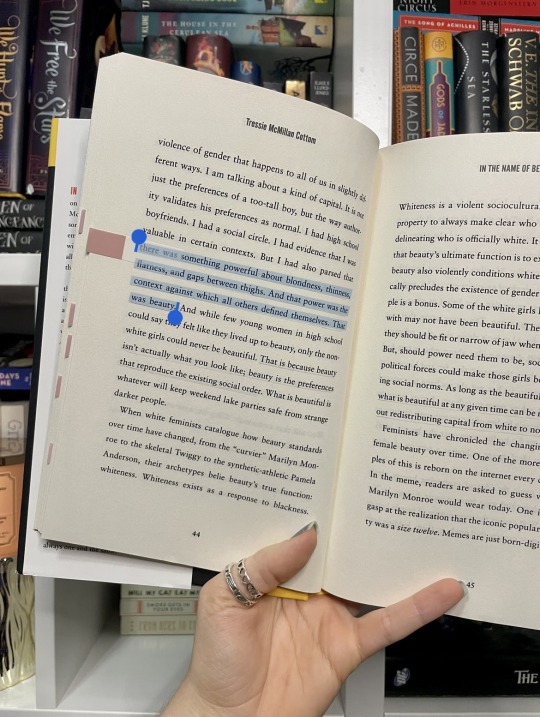

☆☆YouTube | Tumblr | Instagram | Storygraph ☆☆
book review || Thick & Other Essays by Tressie McMillan Cottom
video review || Happy Women's Empowerment Day -- Feminist Reading Vlog issue 3
From the first chapter, I knew I liked the author’s writing, because she takes the time to explain why the issues she’s discussing matter and their importance to her. It made it easier to connect with her as an author, meaning I’m more engrossed in her writing and taking more time to understand what she’s saying. On one hand, her writing feels pretty relaxed, it flows seamlessly between the connecting thoughts, but it still feels academic and complex. It’s a hard balance, but she’s managed it well, while still getting across her passion for the topics. What I’ve been most impressed with is the author’s beautiful utilization of an extended metaphor.
Particularly the essay, In the Name of Beauty, made me rethink my own perspective. Specifically, around the racism in beauty standards, a section of intersectional feminism that I’d never thought deeply into, but almost immediately, I understood and wanted to know more. The author actually even calls out The Beauty Myth, a book I have on my owned TBR after picking it up randomly at a Half Price Books, for the total lack of intersectionality between race and beauty standards. I’m still intrigued by the thesis of the book, but am glad to have this knowledge going in so that I can be more aware of the blind spots and biases. This essay was also reinforced in a more fashion-focused way in Fabulousness, which I thought was clever and well presented, even if not a new topic to me.
However, that became a trend for me in the later essays, they no longer felt like new topics or new points of view about them. I was still moved by Dying to be Competent, which discussed medical racism, **and Black Girlhood, Interrupted, which discussed how black women are so often discarded when there’s any question of value. Both are disgusting realities that have been proven time and again. The utilization of big-name celebrities, in the latter, such as R. Kelly and Charlamagne tha God, was also a smart one in that she was able to showcase examples of this, but also address the toxic thought process that because these black men have become celebrities, that somehow absolves them of the terrible things they do to black women.
The author interweaves her personal anecdotes with her discussions and references in a clever way, appealing to your empathy before diving into the meat of her theories that will make you think. It’s awful that she’s experienced so many of these things, but what’s worse is the reasons that they’re happening and continue to happen, because of societal stigmas and historical biases. She’s also not afraid to make her readers uncomfortable, but that’s the perfect opportunity to ask why and take what’s given as a jumping-off point for change in your own thoughts. While each essay isn’t long, the topics themselves are thick (pun intended) and sometimes analytical.
This ended on a low note for me, though. The last essay was interesting in the discussions about the publishing industry, but it felt more like a rant, and the evidence utilized did not seem to tie in with the main point she was arguing.
4 / 5 stars
#book review#thick and other essays#thick by tressie mcmillan cottom#bookblr#booklr#book tumblr#studyblr#booktube#booktuber#book youtube#book quotes#nonfiction book recs#nonfiction book recommendations#nonfiction book review#feminist books#books with feminist themes
24 notes
·
View notes
Text
"The problem with gender is that it prescribes how we should be rather than recognizing how we are. Imagine how much happier we would be, how much freer to be our true individual selves, if we didn’t have the weight of gender expectations." - We Should All Be Feminists by Chimamanda Ngozi Adichie
#book blog#book quotes#bookblr#bookish#booklr#books#books & libraries#books and libraries#bookworm#book#quotes#quote#book quote#nonfiction#Chimamanda Ngozi Adichie#we should all be feminists#commonplace journal#commonplace book
9 notes
·
View notes
Text
The idea that a single woman might think of herself as the equal to a man was derided by the late nineteenth-century radical thinker and poet Edward Carpenter, who said in 1897 that spinster feminists were 'out of line . . . Such women do not altogether represent their sex; some are rather mannish in temperament; some are "homogenic", that is inclined to attachments to their own sex rather than the opposite sex; such women are ultra-rationalising and brain-cultured; to many, children are more or less a bore; to others, man's sex-passion is a mere impertinence, which they do not understand, and whose place they consequently misjudge.'
"Normal Women: 900 Years of Making History" - Philippa Gregory
#book quote#normal women#philippa gregory#nonfiction#single woman#equality#derision#19th century#radical thought#poet#edward carpenter#90s#1890s#spinster#feminist#out of line#mannish#temperament#homogenic#wlw#lesbian#cultured#rational#cerebral#childfree#impertinence#judgement
3 notes
·
View notes
Text
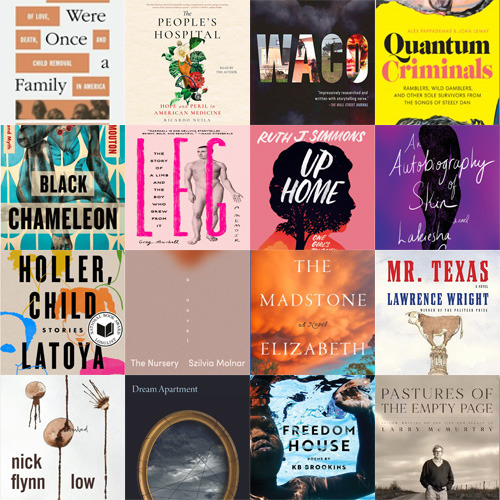
“The Texas Observer’s 2023 Must-Read Lone Star Books” by Senior Editor Lise Olsen, with help from Susan Post of Austin's Bookwoman:
Despite a disturbing rise in book bans, Texas is, against all odds, becoming more and more of a literary hub with authors winning accolades, indie bookstores popping up from Galveston Island to El Paso, and ban-busting librarians and other book-lovers throwing festivals. So as you ponder gifts this holiday season or consider what to read by the fire or by the pool (who can say in December?), pick some Lone Star lit.
Here’s a list of #MustRead 2023 books by Texans or about Texas compiled by the Observer staff with help from Susan Post of Austin’s independent Bookwoman. (Several talented Texans also made best book lists in Slate magazine, The New Yorker, and NPR’s Books We Love.)
NONFICTION
We Were Once a Family: A Story of Love, Death, and Child Removal in America by Dallas journalist Roxanna Asgarian (Farrar, Straus & Giroux) is a dramatic takedown of the Texas foster care and family court system. It’s both a compelling narrative and an investigative tour de force.
The People’s Hospital: Hope and Peril in American Medicine (Simon & Schuster) by Ricardo Nuila, a Houston physician and author, is an eye-opening and surprisingly optimistic read. Nuila delves deeply into what’s wrong with modern medicine by painting rich portraits of the patients he’s treated (and befriended) while working at Harris County’s Ben Taub Hospital, which offers free or low-cost—yet high-quality—care against all odds. Each of them had been forced into impossible positions and suffered additional trauma from obstacles and gaps in insurance, corporate medicine, and Big Pharma.
Waco: David Koresh, the Branch Davidians and a Legacy of Rage (Simon & Schuster) by Fort Worth journalist Jeff Guinn is one of two books that mark the 30th anniversary of the standoff between the Branch Davidians and federal agents that ended with 86 deaths. (The other is Waco Rising by Kevin Cook.) Both authors recount how the 1993 tragedy shaped other extremist leaders in America—and still influences separatist movements today.
Quantum Criminals: Ramblers, Wild Gamblers and Other Sole Survivors from the Songs of Steely Dan (University of Texas Press) by Alex Pappademas and Joan LeMay has been described as the quintessential Steely Dan book. As part of the project, LeMay, a native Houstonian, created 109 whimsical portraits of characters that sprang from the musicians’ lyrics and legends. In a review, fellow artist Melissa Messer wrote: “Looking at Joan’s oeuvre makes me feel tipsy, or like I’ve drunk Wonka’s Fizzy Lifting Drink and I’m swimming through the air after her, searching for the same vision.”
Memoir
Black Cameleon: Memory, Womanhood and Myth(Macmillan) by Debra D.E.E.P. Mouton, the former Houston poet Laureate, shares lyrical memories of her own life mixed with ample asides on Black culture and family lore. Her storylines sink deeply into a dream world, and yet readers emerge without forgetting her deeper messages.
Leg: The Story of a Limb and a Boy Who Grew from It (Abrams Books) by Greg Marshall of Austin has been described as “a hilarious and poignant memoir grappling with family, disability, and coming of age in two closets—as a gay man and as a man living with cerebral palsy.” NPR’s Scott Simon, who interviewed Marshall, described the memoir as “intimate, and I mean that in all ways—insightful and often laugh-out-loud funny.”
Up Home: One Girl’s Journey (Penguin Random House) by Ruth J. Simmonsis a powerful memoir from the Grapeland native who became the president of Brown University and thus, the first Black president of an Ivy League institution. Simmons begins by sharing stories about her parents, who were sharecroppers, and about her life as one of 12 children growing up in a tiny Texas town during the Jim Crow era. For her, the classroom became “a place of brilliant light unlike any our homes afforded.” (Simmons’s other academic credentials include being the former president of Smith College; president of Prairie View A&M University, Texas’s oldest HBCU; and the former vice provost of Princeton.)
Novels and Short Stories
An Autobiography of Skin(Penguin Random House) by Lakiesha Carr weaves together three powerful narratives all featuring Black women from Texas. Carr, a journalist originally from East Texas, plumbs the depths of each character’s struggles, sharing tales of gambling, lost love, abuse, and the power of women to overcome.
Holler, Child (Penguin Random House), a new short story collection from Latoya Watkins, was long-listed for the National Book Award. Her eleven tales press “at the bruises of guilt, love, and circumstance,” as the cover description promises, and introduce West Texas-inspired characters irrevocably shaped by place.
The Nursery (Pantheon Books) by Szilvia Molnar—a surprisingly honest, anatomically accurate (and unsettling) novel about new motherhood—begins: “I used to be a translator and now I am a milk bar.” It’s a riveting and original debut by Molnar, who is originally from Budapest, was raised in Sweden, and now lives in Austin.
Two legendary Austin writers weighed in with new novels on our tall stack of Texas goodreads: The Madstone (Little, Brown and Company) by Elizabeth Crook, the 2023 Texas Writer Award winner, and Mr. Texas, a fictional send-up of Texas politics by Pulitzer Prize-winning author Lawrence Wright.
Poetry
Bookwoman’s Susan Post, who contributed titles to our list, also recommends filling your holiday shelves with poetry by and about Texans:
Dream Apartment (Copper Canyon Press) by Lisa Olstein;
Low (Gray Wolf Press) by Nick Flynn;
Freedom House by KB Brookins (published by Dallas’ Deep Vellum Bookstore & Publishing Co.)
Essays
Pastures of the Empty Page: Fellow Writers on the Life and Legacy of Larry McMurtry (University of Texas Press) edited by George Getchow, contains essays from a who’s who list of Texas writers about Larry McMurtry’s influence on Texas culture and their lives. It includes an array of reflections on history and the writing process as well as anecdotes about McMurtry’s off-beat and innovative life.
To Name the Bigger Lie (Simon & Schuster) by Sarah Viren, an ex-Texan who now teaches creative writing at Arizona State University, (excerpted in Lithub) includes reflections on Viren’s experiences (and misadventures) as an “out” academic and writer in states like Florida, Texas, and Arizona. As she dryly notes, “Critiques of the personal essay, and by extension memoir, are often gendered—not to mention classist and racist and homophobic.”

Can you help us survive, and thrive into our 70th year during this challenging time for the journalism industry?
Right now, all donations to the Texas Observer will be matched. Donate now!
#books#feminism#feminist books#Texas#fiction#nonfiction#poetry#essay#southern fiction#LGBTQIA#gay fiction
3 notes
·
View notes
Photo
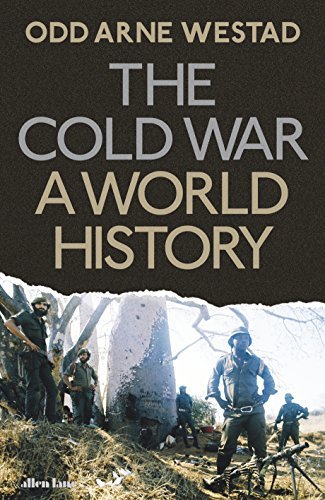
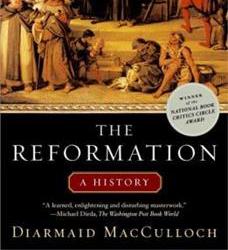
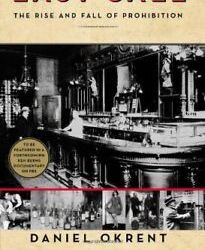
reading retrospective 2023: extremely thick and unexpectedly gripping general histories
#as a disclaimer for nonfiction books of like 450+ pages- no i havent' read every word no i haven't verified everything the author says etc#etc#but the gold war: a global history one i just dug up. i read most of it in high school when i had an IB depth study of the cold war#it's a really interesting repositioning of the cold war by looking especially at africa latin america and asian nations and the smaller#and domestic aspects of it. obvs can't say i agree with/can verify westad on everything#but a super important repositioning incredibly critical of both us and soviet imperialism and the results#the reformation is also interesting in terms of i will admit to not really reading the actual martin luther parts#but macculloch goes into detail for hundreds of pages about the reformation as social revolution and that is FASCINATING holy moly#the stuff with gender. with family structure and homosexuality and whichcraft and sex and death and how this affected social patterns and#ordinary people#ditto last call. haven't finished this but a nuanced history of nuanced issues and the feminist and progressive concerns at play also#fascinating#anyway. just like not what i expected from the cover unexpectly gripping#reading retropsective
13 notes
·
View notes
Text
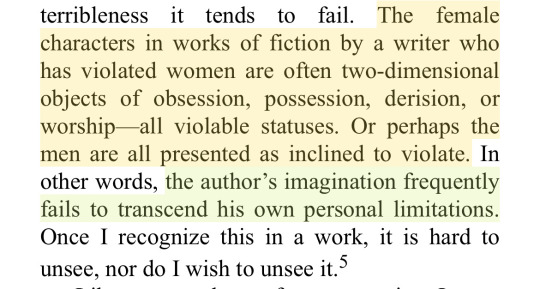
Body Work by Melissa Febos
#melissa febos#feminism#feminist#female characters#nonfiction#memoir#literature#fiction#character writing
8 notes
·
View notes
Text
like reading?
Me too!
Like learning more about your body and pleasure?
Me too!
Here are some book recommendations that may help you feel more comfortable in your sexuality. Maybe they can give you some new things to experiment with, too!
ENJOY <3
#reading#book recommendations#feminist books#nonfiction#books and reading#readers#sex education#sexuality
15 notes
·
View notes
Text
Finished: Madame Restell
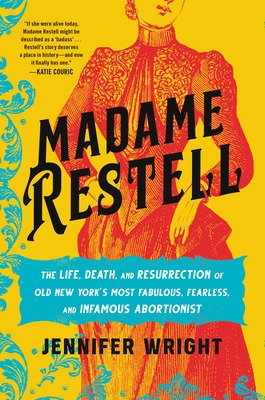
TITLE: Madame Restell-The Life, Death, and Resurrection of Old New York's Most Fabulous, Fearless, and Infamous Abortionist
AUTHOR: Jennifer Wright
CATEGORY: Nonfiction
GENRE: Biography, History
PUBLISHED: February 2023
THOUGHTS: While this is a biography on Madame Restell, it does also delve into history surrounding her. You get some abortion rights history, you get some NYC history, some suffragist history, and anything that ties into Restell's circumstances/life story.
It is very informative and engaging. I just kind of wish it was a bit more focused. I also feel like the author kept interjecting her personal opinion into it. While that is fine for things like essays/memoirs/etc. I don't look for that in biography/history books. The only time I'll overlook it, is if there's a bit of mystery/unknown info missing and the author gives their take on what they think might have happened. This did not ruin the book or anything, this is just a personal annoyance for me. It might not bother other people.
RATING: 3 1/2 out of 5
3 notes
·
View notes
Text
October's Book Recommendation
I've got a book recommendation that is definitely quite relevant at the moment, especially when understanding feminism through the lens of women living in the Middle East. It's a refreshing read by an actual Arab feminist! [As someone who's Arab, I was so excited and happy to read this!]
'I Killed Scheherazade: Confessions of an Angry Arab Woman' by Joumana Haddad really helped me see things in a new light and it's a much needed book with a much needed perspective that often goes ignored and/or misrepresented,
Middle Eastern women deserve to have their voices heard. And books about the nuances of their identity are very important if we want these voices to be heard.
Also, if anyone has more feminist books by Arab women, please share it! I'd love to read more.
#booklr#books#book#reading recommendations#book reccs#book recommendations#bookaholic#reading#novels#essay#feminism#womens rights#middle east#social issues#social justice#feminist#nonfiction
9 notes
·
View notes
Text
in 2023 i want to read more. i was going to get started on the beauty myth but i heard it has a lot of unsourced claims?
#i also want to read women who run with wolves and who cooked the last supper#i know some of the claims in wctls are also questionable#i was v proud of myself for reading and taking notes on invisible women#i'm also glad i read women race & class bc it was a fantastic book but also affirmed that i am not a marxist feminist#and maybe i can find some les/bi f/f fiction... i only read nonfiction last year#anyway i'm waitin on my ambien to kick in lol
4 notes
·
View notes
Text
Feminist parenting creates unique challenges. Mothers may struggle with shifts in their own subjectivity and the peculiar conjoinment of parenthood. As women experience the unique powerlessness of motherhood, they also hold the uncomfortable power of acting as advocates for and as agents of socialization and social control over their children. Fathers may feel the desire for feminist parenting whilst experiencing a backlash and a lack of support, while some parents may attempt to resist the binaries of mothering and fathering in their feminist parenting journey.
Feminist parents may attempt to resist gender binaries; they may submit to them while attempting to foster critical dialogue; they may struggle with the display of their own femininity and masculinity or, for some, its perceived lack. For some parents a dialogue about gender normativity may be inspired by gender-diverse behavior on the part of their own children, while others may parent children who happily submit to the mainstream and query the need for gender questioning.
#adult books#nonfiction#lgbt nonfiction#parenting#lgbt family#genderfluid#transgender#nonbinary#self help#ownvoices#feminist parenting#daily book#bookblr
2 notes
·
View notes
Text
As a woman, my everyday urban experiences are deeply gendered. My gender identity shapes how I move through the city, how I live my life day-to-day, and the choices available to me. My gender is more than my body, but my body is the site of my lived experience, where my identity, history, and the spaces I’ve lived in meet and interact and write themselves on my flesh. This is the space that I write from. It’s the space where my experiences lead me to ask, “Why doesn’t my stroller fit on the streetcar?” “Why do I have to walk an extra half mile home because the shortcut is too dangerous?” “Who will pick up my kid from camp if I get arrested at a G20 protest?” These aren’t just personal questions. They start to get to the heart of why and how cities keep women “in their place.”
Leslie Kern, Feminist City: A Field Guide
#Leslie Kern#feminist city#gendered spaces#urban life#women and city#nonfiction#feminist literature#women authors#books & libraries#book excerpt#***
3 notes
·
View notes